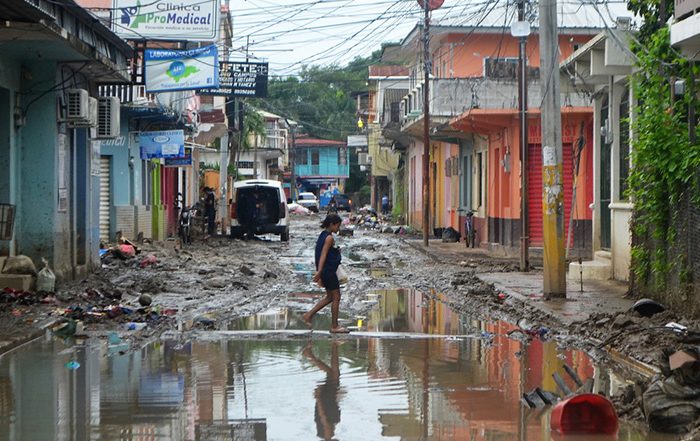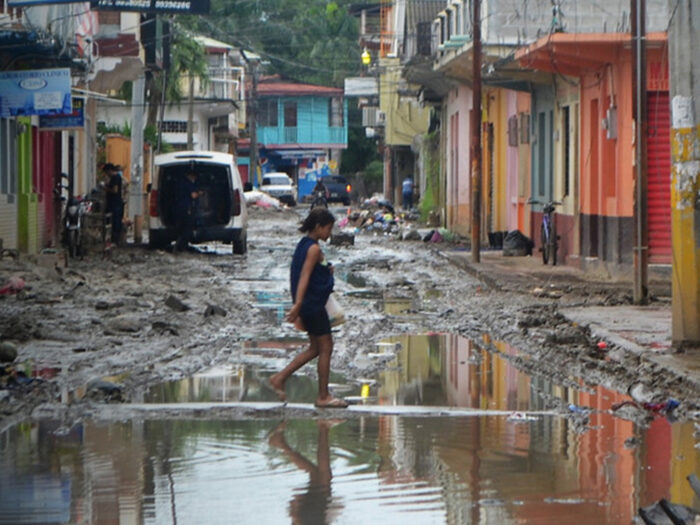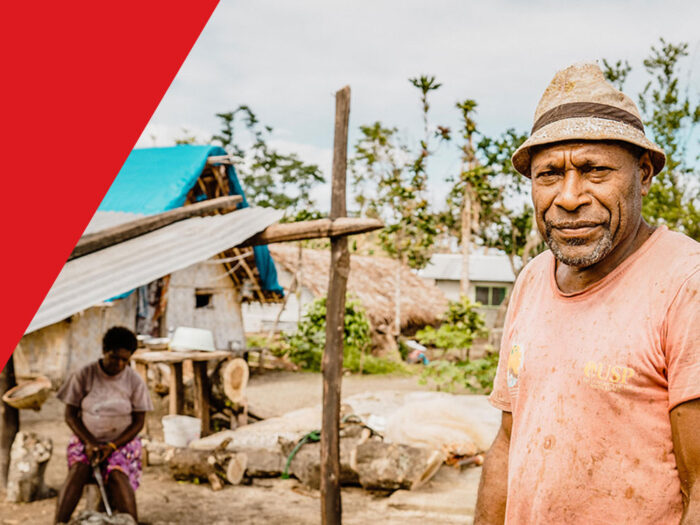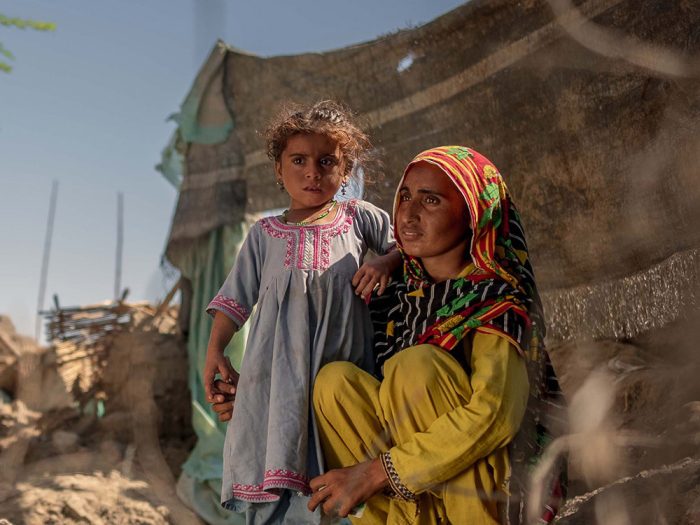
How climate change affects disasters
Climate change is a humanitarian crisis. Find out key stats about climate change, how it affects disasters and people, and what we're doing about it.
Time is running out. Our changing climate is creating an unprecedented need for emergency shelter around the world.
Even if global heating is stabilised at 1.5C increase, we will still see more extreme storms, more devastating floods and scorching droughts (IPCC report). All of these will force millions more people from their homes. It will make more places in our world unliveable.
Every day, people are losing their homes to climate-related extreme weather events and conflict. That’s why we’re calling for people all across the UK to help people living with the effects of the climate crisis.
Read on to learn more and see how you can support families who are losing their homes today.

Disasters aren’t natural, and neither is climate change.
Our changing climate is making large weather events like floods, hurricanes, droughts and wildfires worse.
Extreme weather events like these often happen in countries where many people live in poverty. We help vulnerable communities recover after disaster, but the climate crisis is making challenging situations worse.
The climate crisis is a human crisis, permanently changing the lives of millions of people living in vulnerable locations around the world.
It is having a huge impact on people who depend on the weather for their livelihoods. People who farm, rear livestock, or live a nomadic lifestyle are struggling to feed their families. Climate shocks bring devastating and long-term effects, often forcing them to move away into cities.
Learn More
Every year, communities are devastated as hurricanes, tropical storms, cyclones and typhoons make landfall.
But as climate change intensifies, these storms are creating even more destruction. In fact, in the next 20 years, more than 200 million people will be uprooted by extreme storms.
We will continue helping people on the frontline of climate change as long as it’s needed. Join us.
Learn more
As COP28 begins in Dubai, the impacts of the climate crisis and the toll on human lives and the planet is undeniable.
We do not have the luxury of time, or indecision. The leaders at COP28 must work collaboratively to build strategies with tangible and meaningful outcomes for people facing the immediate and long-term consequences of the climate crisis.
Every day, the human made climate crisis is displacing families, destroying homes, and threatening lives. During COP28, we urge world leaders to keep in mind every person, every home, and every community behind the statistics.
Learn more